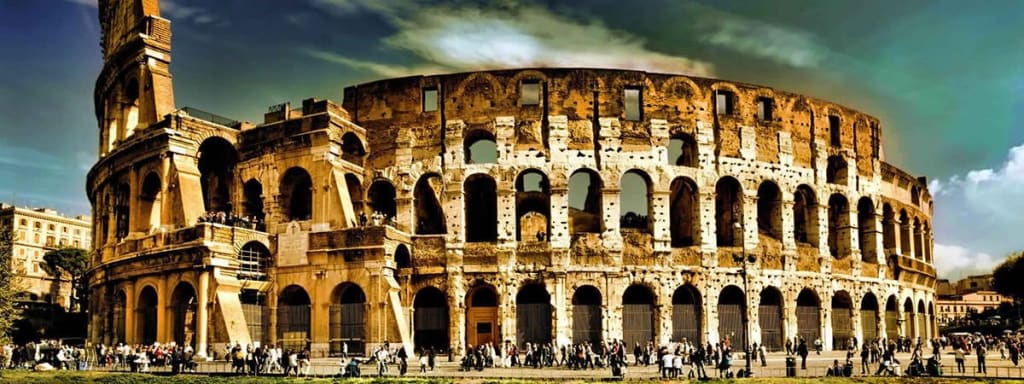The Rise and Fall of the Roman Empire
"From Glory to Ruin: Tracing the Rise and Fall of the Roman Empire"

The Rise and Fall of the Roman Empire: A Historical Overview
The Roman Empire, which lasted greater than 500 years, turned into one of the most influential and powerful empires in history. Its effect is felt today in regions consisting of language, regulation, authorities, and architecture. But, despite its extreme success, the Empire ultimately disintegrated, causing its effect and energy to decline. In this text, we will discover the rise and fall of the Roman Empire and discover some of the elements that caused its eventual decline.
Rise of the Roman Empire
The Roman Empire began as a small city-state in imperative Italy but multiplied to encompass a lot of Europe, North Africa, and the center East. The rise to power changed into an aggregate of army conquest, political agency, and cultural assimilation.
Navy conquest was a main factor in the expansion of the Roman Empire. Rome can conquer and subjugate neighboring towns and kingdoms, therefore expanding its territory and wealth. The Roman military turned into one of the most advanced of its time, training in tactics, weapons, and tactics to defeat its enemies. The Roman army turned into also distinctly disciplined and helped maintain order and balance in the empire.
The political corporation became additional essentials in improving the Roman Empire. Rome had organized authorities that became able to efficiently control the territory it ruled. Earlier than the Empire, the Roman Republic had a complicated gadget of exams and balances that avoided one man or woman from becoming too effective. This machine later changed through the Roman Empire, which became ruled by one emperor. The emperor had absolute energy, however, he became issued to the legal guidelines and customs of the Roman Republic.
Cultural assimilation became other crucial factor in the growth of the Roman Empire. Rome was able to assimilate the tradition of the conquered human beings, which helped create a sense of unity and commonplace identity within the empire. The Romans adopted many factors of the subculture they conquered, together with their gods, art, and architecture. This combination of cultures helped create a unique Roman way of life that unfold throughout the empire.
The Autumn of the Roman Empire
Regardless of his astonishing success, the Roman Empire subsequently declined and fell. Numerous factors caused the decline, inclusive of economic instability, navy expansion, and political corruption.
Economic instability was the main thing behind the fall of the Roman Empire. As the Roman economy changed based on agriculture, because the empire improved, it have become increasingly tough to hold a strong food delivery. This results in inflation and economic instability, which makes it difficult for the government to aid public works and social packages. The economic decline also brought about a decline in dwelling requirements for plenty inside the empire.
Extra navy enlargement brought about the decline of the Roman Empire. As the empire improved, it have become extra difficult to protect its borders. The Roman military was unfolded thin, and holding order within the empire became extra tough. The Roman army changed into also weakened via political corruption, which caused a decline in area and performance.
Political corruption may be the most critical factor in the fall of the Roman Empire. Because the empire grew, the government became increasingly corrupt and useless. Emperors had been frequently chosen for their non-public loyalty rather than their career, which caused a decline in the best of leadership. Corruption was rampant within the government, making it tough to maintain order and stability in the empire.
The consequences
The Rise and Fall of the Roman Empire is a captivating tale that has captured the imagination of people for hundreds of years. The empire's brilliant achievement left a long-lasting legacy, but its eventual decline became a cautionary tale





Comments
There are no comments for this story
Be the first to respond and start the conversation.